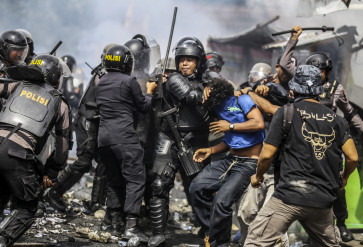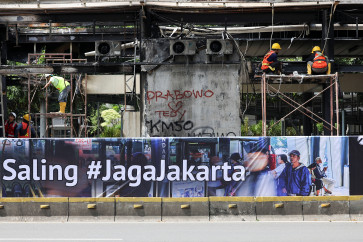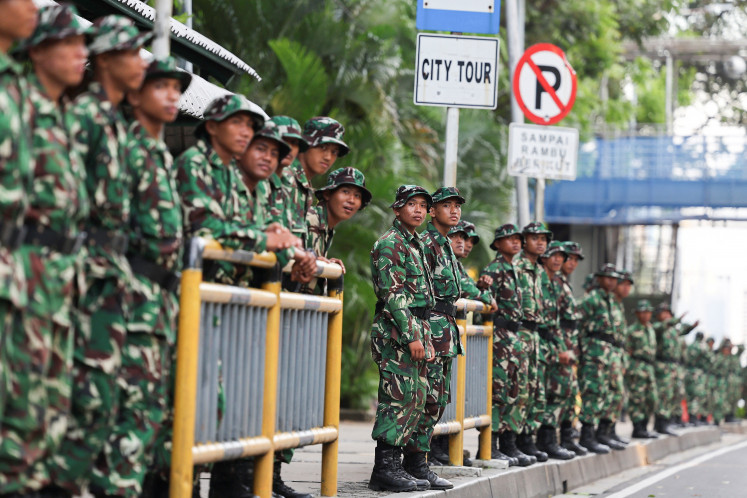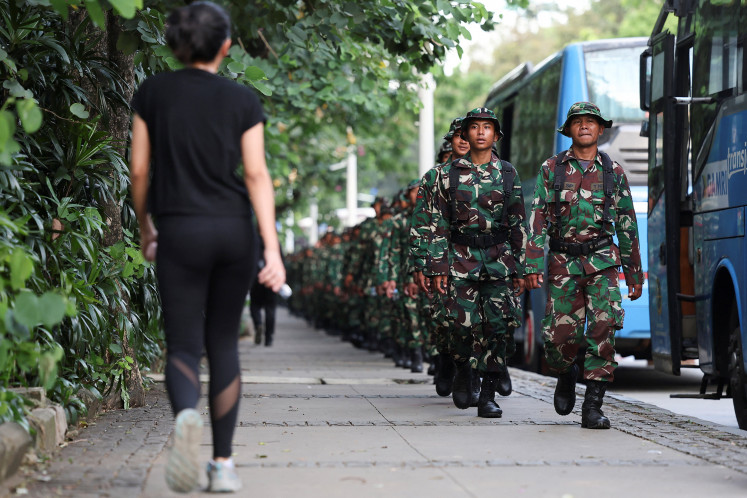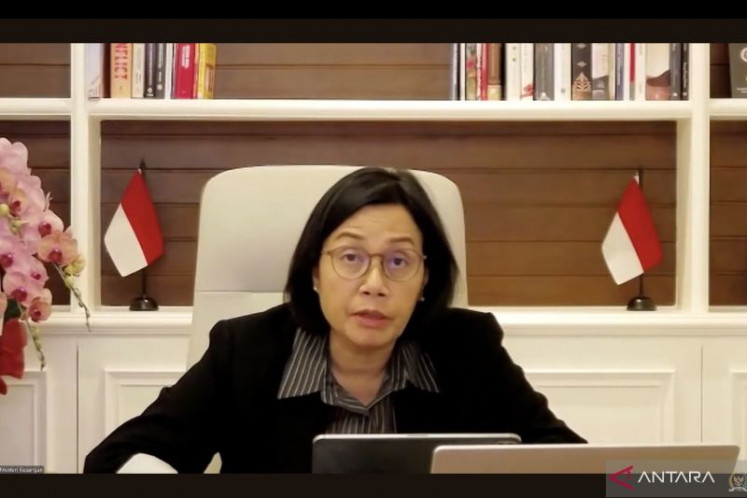Popular Reads
Top Results
Can't find what you're looking for?
View all search resultsPopular Reads
Top Results
Can't find what you're looking for?
View all search resultsJokowi signs amended regulation on character education
President Joko “Jokowi” Widodo signed on Wednesday a regulation revising the government’s much-debated character education policy, which earlier sparked concerns among Muslim groups about the future viability of madrasahs (Islamic schools) in Indonesia
Change text size
Gift Premium Articles
to Anyone
P
resident Joko “Jokowi” Widodo signed on Wednesday a regulation revising the government’s much-debated character education policy, which earlier sparked concerns among Muslim groups about the future viability of madrasahs (Islamic schools) in Indonesia.
Jokowi said he was very happy that all parties had given their support to Presidential Regulation (Perpres) No. 87/2017 on the strengthening of character education, which he called a “comprehensive” regulation.
“The regulation will be followed by the creation of supporting regulations to speed up the implementation of our character education policy. This will also serve as a legal umbrella for ministers, governors, regents and mayors in preparing budgets to strengthen the delivery of character education in madrasahs, schools and in society,” Jokowi said on Wednesday.
“The most important thing here is that I have signed the Perpres. There must no longer be any debate over the issues such as what happened in the past.”
Jokowi also highlighted the role of Muslim organizations in the composition of the Perpres, including the Nahdlatul Ulama, Muhammadiyah, the Indonesian Ulema Council (MUI) and the Indonesian Muslim Intellectuals Association (ICMI).
Opposition to the deliberation over the character education policy, which is part of Jokowi’s education improvement agenda, was mostly connected to the definition and make up of a school day.
The previous draft of the Perpres proposed a five-day school scheme, which straightaway generated strong opposition from madrasah owners and administrators. They were of the opinion that school-aged children would no longer have time to take Islamic classes in madrasahs if they concluded their regular school activities at 3 p.m. as proposed in the five-day school scheme.
NU chairman Said Aqil Siradj said in a statement on Wednesday that the Muslim group supported and appreciated the regulation. He called on NU members to support the implementation of Perpres, which he said was part of a national development program.
“Let us end the debate over the previous regulation,” said Said Aqil, referring to Culture and Education Minister Regulation No. 23/2017, which proposed a character education program implemented through a five-day school scheme.
NU executive Abdul Ghaffar Rozin said in a statement that the five-day school scheme would eventually kill off the operations of madrasahs belonging to the Muslim group. Currently, NU runs about 60,000 madrasahs. Most of the activities at the madrasahs take place after school hours.
Culture and Education Minister Muhadjir Effendy, who is also an executive with Muhammadiyah, held a meeting with Yenny Wahid, the daughter of the late NU ulema and former president Abdurrahman “Gus Dur” Wahid.
The Jakarta Post tried to contact Abdul Mu’ti, Muhammadiyah secretary-general, and the group’s other executives, but to no avail.
According to a copy of the regulation obtained by the Post on Wednesday, there are some stark differences between Perpres 87 and the ministerial regulation.
Article 9 (1) of the Perpres stipulates that character education can be carried out in either six-day or five-day school schemes, while the ministerial regulation 23 stipulated that this could be done only within eight hours in the five-day scheme.
In the Perpres, madrasahs determine the school days. Article 9 (2) allows schools to “jointly” decide with madrasahs and school committees about school days.
According to Article 2, character education aims to prepare students to become “Indonesia’s golden generation in the year 2045,” which will mark the country’s 100th year of independence.
It is stipulated in the Perpres that several values are to be instilled in students during the character education process, among them religiosity, honesty, tolerance, discipline, hard work, creativity, nationalism, peace, care for the environment and social responsibility.


